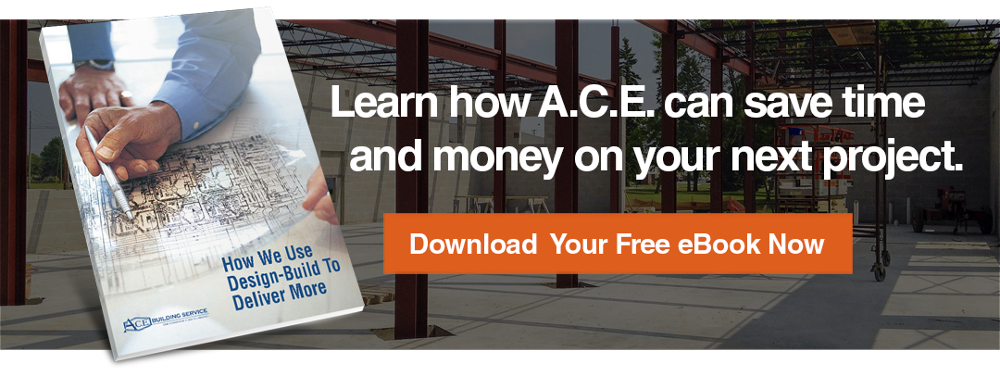I was recently invited to meet with a prospect who is looking for a build-out of a commercial space in Northeast Wisconsin. When I arrived, the owner was meeting with another commercial construction contractor who had also been invited to do a walk-through and discuss the impending project. I soon found out another contractor would be walking in my same footsteps just a couple of hours later.
The owner was doing what he thought was best—getting three bids for his commercial construction project.
This has been a standard practice for decades among owners who feel that, in order to get the best deal on their construction project, they should create competition among contractors. They believe this will allow them to leverage the three bids to their advantage.
Here is why getting three bids is the worst thing you could do:
The process of getting three bids places cost at the highest priority.
The old saying “you get what you pay for” could not be more accurate. Soliciting three prices and choosing the lowest bid ensures one thing: Owners are getting the most competitive cost for the plans and specifications they paid their design professional to draft. However, the assurance stops there. There is no guarantee that the owner will receive the best quality project, with the best materials and the best subcontractors. It also does not ensure that the project will be completed on time and within budget.
Bidding general contractors have no choice but to take the lowest bids they receive from vendors and trade partners. It creates a relationship that solely revolves around cost and you get what you pay for — the lowest cost does not guarantee quality.
The contractor-owner relationship is just that…a relationship.
Owners should choose commercial building construction contractors based on capabilities, merit, and demonstrated successes. After all, they will be working together—in some cases for many months—to reach a goal or realize a dream.
Respect and open communication are paramount to the success of any commercial construction project. Choosing the lowest bidder can often result in disputes, which can end up in litigation, increased costs and shoddy workmanship. Relationships are built on trust, communication, and ideals such as teamwork and accountability. I’m not really sure what is built on low cost.
Apples-to-apples, right?
The reality is that without a set of very specific plans and specifications, an owner who has the best intentions of providing a level playing field and gathers “apples-to-apples” comparisons will most likely wind up with apples, chickens, and watermelons. Ugh! Now what?
This is similar to a customer visiting three different car lots and asking how much a new car will cost with no other parameters. Whoever presents the customer with the best car will get the sale. But where do you begin? Will the car have two doors or four doors? All-wheel drive? Leather or cloth seats? Fuel economy?
Do you see where I’m going with this? It’s essential the project owner does their research and clearly understands exactly what they are looking for in the project, including design measurements, materials, and the end purpose and goal of the completed project.
So, back to that prospect with the commercial renovation project. Needless to say, I declined to submit a bid. Here’s why:
In this case, the owner didn’t do his homework on his commercial project and he wasn’t prepared. He had no plans and no specifications. He was just going room-to-room talking about what he thought he wanted for the space.
Our conversation went like this:
Customer -- “I would like new flooring in this room.”
Me --“Sounds good. What kind of flooring were you thinking about?”
Customer -- “I’m not sure. Why don’t you suggest something.”
This is a great interaction under a design/build setting, but not in the competitive bidding arena. Each contractor would have interpreted that information in his or her own way (not to mention every other aspect of the project) and the bids would be all over the map.
At A.C.E. Building Service, we bring extensive experience to every commercial construction project. We are proud to offer exceptional services and communication with your team every step of the way. We work with you from concept to completion to keep your commercial construction project on time and on budget.
Here is what should have happened...
The owner should have gathered as much information as possible on the construction project, including building dimensions, his plans for the current space and his budget. He should have then researched contractors in his region who have demonstrated their ability to successfully complete similar projects. He should have talked to other business people who have worked with the contractor and invited the contractor to meet with him to discuss his needs. If the contractor has the capabilities and the references, and the owner feels the level of communication and trust are there, then he should take it to the next stage.
A reputable commercial building construction contractor will work with the owner to determine feasibility and to value engineer the project to help align the costs with the budget without sacrificing must-have features and the owner’s project timeline.
After all, a good contractor will do whatever it takes to be a responsible steward of their client’s money. When the owner invites the contractor to be part of the process from the very start, costs can be controlled and potential problems can be avoided before they crop up. The contractor enters the arrangement feeling like a trusted partner rather than someone who is going to get beat up on pricing at every stage of the process.
Remember, you get what you pay for.








